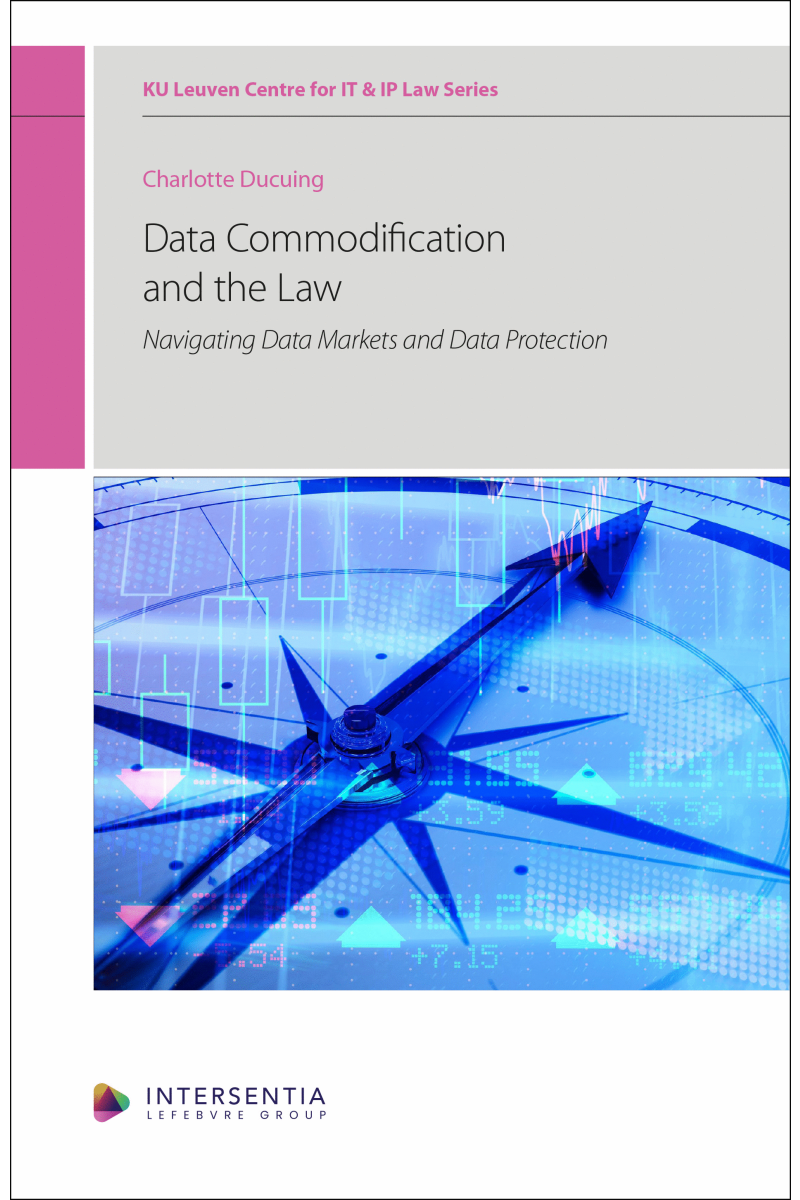 maestro
mastercard
visa
maestro
mastercard
visa

Data Commodification and the Law
Navigating Data Markets and Data Protection

Data have become a crucial element of today’s economies and societies, which has in turn sparked a vivid debate on how data shall be regulated as resources out of both efficiency and fairness concerns. The European Union embarked on the ambitious project to create a ‘European single market for data’, thus turning data into tradable commodities through various initiatives including legislative ones. Data are an uneasy legal object and their role as resources cannot be easily untied from their other dimensions. In particular, data protection law (with the flagship GDPR) addresses the harms that data processing by others can cause to individuals identifiable through data and, ultimately, to democratic societies. A crucial question is thus whether EU data legislations geared toward the establishment of data markets can be squared with personal data protection. Based on her doctoral research, Charlotte Ducuing addresses this question with a novel and original approach based on commodification studies. A must-read to understand data legislation, its commodification dynamics and their impact on data protection law and to take a fresh perspective on the GDPR.
Charlotte Ducuing is a post-doctoral researcher at the Centre for IT and IP Law of KU Leuven. She holds a Master's degree in law (University of Lille) and in political sciences (Institut d'Etudes Politiques de Lille) and a LLM Intellectual Property and ICT law (KU Leuven). Besides having experience as an in-house lawyer in the Belgian railways and as a teaching assistant at the ULB, she has conducted research on various aspects of the datafication of society. Her doctoral research project (2020–2024) sougth to evaluate the legal soundness of the compatibility model of EU data legislation between data markets and data protection, based on commodification studies. Charlotte engages with infrastructure studies, the regulation of public utilities, commodification studies, regulatory studies and legal theory. More in general, she is interested in how the law addresses complex socio-technological artefacts.
Digital version available on :
- Strada lex Belgium
- Strada lex Europa
You have a subscription? Activate the digital version for free with the code in the book.
| Type of product | Book |
|---|---|
| Format | Hardback |
| EAN / ISSN | 9781839705908 / 9781839705922 |
| Series name | KU Leuven Centre for IT & IP Law Series |
| Weight | 781 g |
| Status | Available |
| Number of pages | 416 p. |
| Access to exercice | No |
| Publisher | Larcier |
| Language | English |
| Publication Date | Jul 31, 2025 |
| Available on Strada Belgique | Yes |
| Available on Strada Europe | Yes |
| Available on Strada Luxembourg | No |
Downloads
- Table of contents and preliminary pages
- Introduction
- PART I. CONCEPTUALIZING DATA COMMODIFICATION
- Chapter 1. Commodification Studies as a Foundational Framework
- Chapter 2. A Data Commodification Spectrum
- PART II. EU DATA LEGISLATION AND DATA COMMODIFICATION
- Chapter 3. How the Data Act Engages with Data Commodification
- Chapter 4. How the Data Governance Act Engages with Data Commodification
- PART III. DATA PROTECTION AND DATA COMMODIFICATION
- Chapter 5. Data Control or How the GDPR Engages with Data Commodification
- Chapter 6. Purpose and Personal Data Commodification
- PART IV. THE MANIFESTATIONS OF THE GAP
- Chapter 7. The Data Control without Controllership Conundrum
- Chapter 8. The Preservation of the Heterogeneity and Autonomy of Data Protection Law
- PART V. CONCLUSIONS
- Conclusions
- Bibliography
- Annex: Legend of Figures